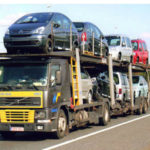On December 9, 2016, a Swiss company, Societe Generale de Surveillance (SGS) held an inauguration ceremony for its first motor vehicle inspection station in Kawanda, north of Kampala.
The company has been contracted by the Ministry of Works to conduct mandatory inspections, ostensibly to curb the high rate of accidents and emissions, both of which are apparently caused by vehicles in poor mechanical condition.
My contentions against this scheme revolve around three points:
Abdication of responsibility by public institutions:
In an effort to understand the institutional framework that governs (public and private) transportation, physical infrastructure, licensing, regulation and taxation, I cast my net deep into the sea of the Policies and Laws of Uganda and I found four institutions in my net: in no particular order, I found the Uganda Police Inspector of Vehicles, Customs Department of Uganda Revenue Authority, Uganda National Roads Authority, Uganda National Bureau of Standards as well as the National Road Safety Council. The Traffic and Road Safety Act 1998 as well as the Import Inspection and Clearance Regulations 2015 were also particularly helpful.
Summarily, the aforementioned public bodies are mandated and owe Ugandan taxpayers a duty of care with regard to the durability of public infrastructure (roads and accessories like traffic lights), automobiles on the market, quality of the fuel that cars consume as well as registration and licensing.
Has the Uganda Police Inspector of Vehicles been rendered useless? Have the Uganda National Bureau of Standards and the Customs Department at URA abandoned their roles of ensuring that all imported products are mandatorily inspected and their fitness for purpose established before they get into the market?
If these two haven’t abandoned their statutory duties (see Section 3(e); 3(f) and 43 of the UNBS Act, Chapter 327 of the Laws of Uganda), why should we pay twice for a service that was already provided and paid for by the end-user at the point of purchase?
How will the cash-strapped National Road Safety Council which received a paltry one hundred and fifty million shillings for Financial Year 2014/2015 function when part of its mandate has been outsourced to a private player, SGS?
Incoherent public policy
The argument by then Minister of Works John Byabagambi to the effect that the inspection is being undertaken to curb accidents and emissions is reflective of an acute lack of understanding on the part of those who purport to be in charge of our public affairs.
Because of the prevailing taxation regime, it is easier to buy a used (reconditioned) vehicle in Uganda today than a new car.
Would it not make more sense to reform the tax code with a view to encourage Ugandans to buy new, first hand cars which are safer and more environmentally friendly? Instead, one public institution charges unconscionable tax rates for new cars (thereby forcing buyers to purchase older cars) while another institution punishes them by charging them for mandatory vehicle inspection for buying older and less environmentally friendly cars! These two angles are treated as entirely unrelated. One institution is anxious to hit revenue collections by all means while others are starved of funds and rendered useless.
Misuse of public offices
This is not the first such haphazard scheme insofar as public and private transportation is concerned. Years ago, road users were stampeded into installing seatbelts. Owners of heavy commercial vehicles had to incur an extra cost of purchasing and having a speed governor fitted.
The ostensible reasons of road safety were clouded by the questionable circumstances surrounding the award of this tender and the abrupt conclusion of the exercise. It did not help matters when it was widely rumoured that a businessman had imported container-loads of seatbelts and speed governors and having failed to get market for the consignments, connived with top guns in law enforcement and that as soon as the last seatbelt and speed governor had been sold, the exercise stopped!
Is it any wonder that a random deadline of June 2017 has been set for inspection, after which defaulters shall be heavily penalized?! For argument’s sake, is it possible to inspect all vehicles in Uganda in a period of seven months? Perhaps by this time, the kingpins of this ‘deal’ will have hit their targeted sales.
Was a competitive procurement process followed for this mandatory inspection? Who owns the Ugandan subsidiary of SGS? What are the technical competencies of the people conducting the actual inspections? Are they accredited by car manufacturers? Are they automotive engineers?
You do not need a magnifying glass to see the fingerprints of fraud, collusion and impropriety surrounding what might in all likelihood turn out to be the latest in a series of continuing heists by public officials who connive with private players to fleece Ugandans under the veil of law enforcement.
Before I sign this off, I have a lingering question in my mind around the duty of care that public institutions owe us as citizens and taxpayers. Inspection of any sort is premised on the assumption that the person being inspected should have no excuse for not meeting the set standards. What kind of roads do we have so that our vehicles should be expected to be of a certain standard?
Many Ugandans regularly have to bear the high costs of replacing shock absorbers, bumpers, grills, tyres and rims due to the damage that is sustained from potholes-turned-gulleys and sometimes fishponds; the traffic lights at Jinja Road have been off for five days—and the skid marks and shards of glass on the tarmac are proof of the accidents that this has caused; who is responsible for traffic lights operability? If the electricity bills have not been paid, why should we road users who pay taxes daily be punished for the malfeasance of a public body? Whereas we are obliged to drive on the left hand side of the road in Uganda, it is no longer possible because if you used the Najjeera Road for instance, you would be forced to drive on what is left of the road, not necessarily on the left hand side!
Will inspecting vehicles cure this state-of-affairs?
For these reasons, I am commencing a campaign against this mandatory vehicle inspection and encourage all taxpayers and road users to join me so that we resist this latest episode of extortion and daylight fraud by lazy and incompetent public officials who are in cahoots with disingenuous business interests disguised in the veils of road safety. Relevant public bodies may want to consider successive reports which have listed the leading causes of road accidents as drink-driving, porous licensing processes, unmarked black spots and poorly built roads.
I am happy to donate the inspection charge of 110,000 shillings to paint zebra crossings at the entrances to many primary schools so as to save our children from the speeding convoys of public officials which feature air-suspension systems that shield them from the craters that we have to endure on these cattle paths they call roads.
In the meantime, I’m going to consider a lawsuit with the intention of compelling SGS to refund all car owners who have been fleeced in the name of mandatory inspection.
Andrew Karamagi








